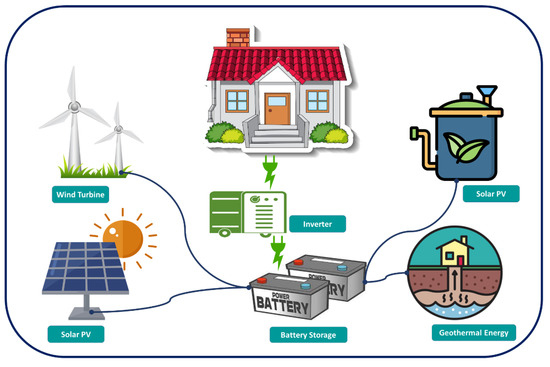 Understanding Renewable Energy Plans: How They Work
Understanding Renewable Energy Plans: How They Work
Key Takeaways:
- Renewable energy plans provide environmentally friendly alternatives to traditional fossil fuel-based energy.
- These plans often involve solar, wind, hydroelectric, and biomass energy sources.
- They help reduce carbon footprints and can offer cost savings in the long term.
- Understanding the terms and conditions of renewable energy plans is crucial for optimal benefits.
Table of Contents:
- Introduction
- What is Renewable Energy?
- How Renewable Energy Plans Work
- Benefits of Renewable Energy Plans
- Types of Renewable Energy Plans
- How to Choose the Right Plan
- Conclusion
Introduction
The increasing awareness of environmental issues and the need for sustainable living have made renewable energy plans more appealing to businesses and households. These plans offer an opportunity to harness natural resources to meet energy needs without depleting the planet’s finite reserves. With the push towards reducing carbon emissions, understanding renewable energy plans is more important than ever. This article delves deep into the mechanisms of these plans and how they can benefit consumers and the environment.
What is Renewable Energy?
Renewable energy is energy derived from naturally replenishing resources such as sunlight, wind, rain, tides, waves, and geothermal heat. Unlike exhaustible fossil fuels, renewable sources regenerate naturally and are sustainable in the long term. The transition to renewable energy is core to global sustainability initiatives, providing cleaner alternatives to traditional energy sources.
Renewable energy plans incorporate various means of generating electricity using these natural resources. Whether harnessing the sun’s power through solar panels or capturing wind currents with turbines, renewable energy plans offer diverse and adaptable solutions for producing green energy. These plans are instrumental in reducing carbon footprints and promoting environmentally responsible energy consumption.
How Renewable Energy Plans Work
Renewable energy plans are designed to provide customers with access to electricity generated from renewable sources. They involve a variety of structures and mechanisms depending on the energy source and the provider’s strategy. For example, a provider may generate energy using solar or wind farms and then distribute this energy through the electrical grid.
These plans typically include a mix of on-site and off-site renewable energy generation. On-site generation allows consumers to harness renewable energy directly at their location, such as solar panels installed on a rooftop. Off-site generation involves the energy provider producing renewable energy at a distant location, which is fed into the grid and delivered to customers. A provider like Indra Energy might purchase renewable energy certificates from both types when offering consumers flexible and reliable energy solutions.
Customers selecting a renewable energy plan may have the option to either offset a percentage of their energy use with renewable sources or choose plans that exclusively rely on renewables. This flexibility helps address varied customer preferences and requirements, making it easier for individuals and businesses to transition to green energy.
Benefits of Renewable Energy Plans
One of the most significant benefits of renewable energy plans is their potential to reduce environmental impact. By relying on energy produced from renewable resources, these plans help decrease greenhouse gas emissions, contributing to a cleaner and healthier planet.
Renewable energy plans can also result in long-term cost savings. Although the initial setup costs for renewable energy solutions such as solar panels might be high, they often lead to lower utility bills due to their efficiency and the renewable nature of the sources. Additionally, many governments offer incentives and rebates that help offset installation costs, making them more accessible.
Furthermore, renewable energy plans support energy independence. By harnessing local resources such as the sun or wind, communities can reduce their reliance on imported fossil fuels, promoting energy security and stability. This energy autonomy is pivotal in managing supply chain challenges and fluctuating fuel prices.
Types of Renewable Energy Plans
Renewable energy plans vary widely, allowing consumers to choose options that align with their energy needs and environmental goals. Some common types include fixed-rate plans, where the price per kilowatt-hour remains constant, providing predictability in energy bills. Variable-rate plans, on the other hand, fluctuate with market conditions and can offer savings when energy prices are low.
Customized plans are another option tailored to specific energy consumption patterns and sustainability goals. Consumers can choose plans integrating multiple renewable sources, such as solar and wind, enhancing versatility and reliability.
Community renewable energy plans offer an inclusive approach by allowing multiple stakeholders to invest in renewable projects. These plans enable communities to share renewable installations’ financial burdens and benefits, encouraging collaboration and community empowerment.
How to Choose the Right Plan
Selecting the right renewable energy plan requires thoroughly understanding one’s energy usage, goals, and budget. Analyzing current energy consumption patterns is essential to determine the most suitable plan type. Assessing the long-term costs and benefits, including potential savings and environmental impact, can guide decision-making.
Consumers should also consider the credibility and reliability of providers, reviewing customer testimonials and ratings. Ensuring transparency in terms and conditions is crucial, as it clarifies the expectations and commitments involved in renewable energy plans.
Lastly, it’s wise to explore potential incentives or rebates offered by government programs that can significantly reduce the financial commitment required. Consulting energy experts can provide insights and recommendations tailored to individual circumstances, facilitating a seamless transition to renewable energy solutions.
In a few words
Renewable energy plans represent a sustainable solution to the growing demand for clean and reliable energy. They offer a wide range of options for individuals and businesses eager to reduce environmental impact while potentially saving on energy costs. By understanding how these plans work and their associated benefits, consumers can make informed choices that align with their energy needs and sustainability goals. Embracing renewable energy plans is a proactive step toward a greener, more sustainable future, encouraging responsible energy consumption that benefits both the planet and its inhabitants.